How BMW stole Australia’s premium electric vehicle market from Audi and Mercedes-Benz | Analysis
Amid all the doom and Boomer gloom about EV sales (as I’ve mentioned before, a shocking proportion of Boomers/Old People seem to be scared and angered by electric cars), I was stunned to learn recently that BMW buyers, and their close relatives in the Mini market, are snapping them up at an incredible rate.
In February this year, almost one in three BMWs sold in Australia were BEVs (29 per cent), and that percentage is excepted to be even higher in the coming months, according to Brendan Michel, BMW Australia’s head of product and market planning.
Perhaps even more remarkably, 48 per cent of those BEV buyers came to BMW from another brand. It’s as if there’s this whole swathe of people who want a properly engineered, classy EV, but don’t want a Tesla.
At Mini, the percentage of BEVs is even higher, pushing as high as 38 per cent depending on the month.
READ MORE:
Perhaps even more remarkably, I’d wager at least some of these BMW BEV buyers are Boomers. At the very least, they’ve got to be cashed up, because BMW certainly isn’t going after the entry-level, sub-$50,000 EV market.
According to the EV Council, the overall percentage of car sales that were EVs (and PHEVs) in 2024 was pushing towards 10 per cent (9.65, up from 8.45 in 2023).
This seems like good news, then, until you ask Audi – notionally one of the companies that has blazed the trail for EV adoption in Australia – how its BEV sales are tracking. In 2024, just four per cent of Audi’s total sales were BEVs. Yes, FOUR.
“Confirming in 2024 we sold approximately 620 full BEVs, noting that the range was quite ’boutique’ between Q8 e-tron, SQ8 e-tron, and e-tron GT, until Q4 and Q6 joined us very late in December,” a spokesperson told me.
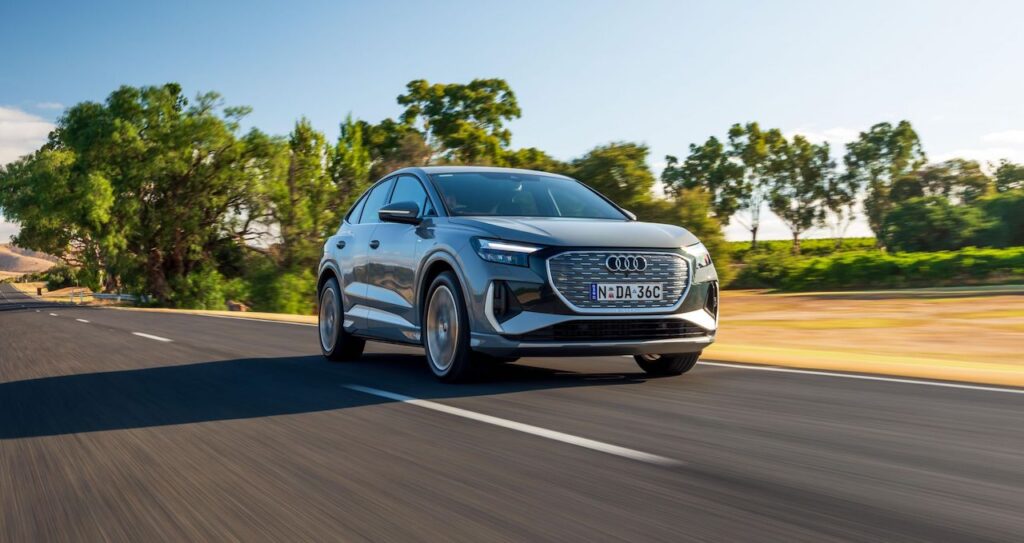
Clearly, the hope is that Q4 and Q6 will kick those EV sales into overdrive, but the gap to BMW would have to be concerning. Audi did point out that 43 per cent of those very few people who did buy a BEV from them had also come to Audi from different brands.
Over at Mercedes-Benz, the percentage of its fleet that were full BEVs in 2024 was 13.5 per cent “but 15 per cent is closer to reality because we didn’t have EQA stock last year, which is our volume car”, a spokesperson added.
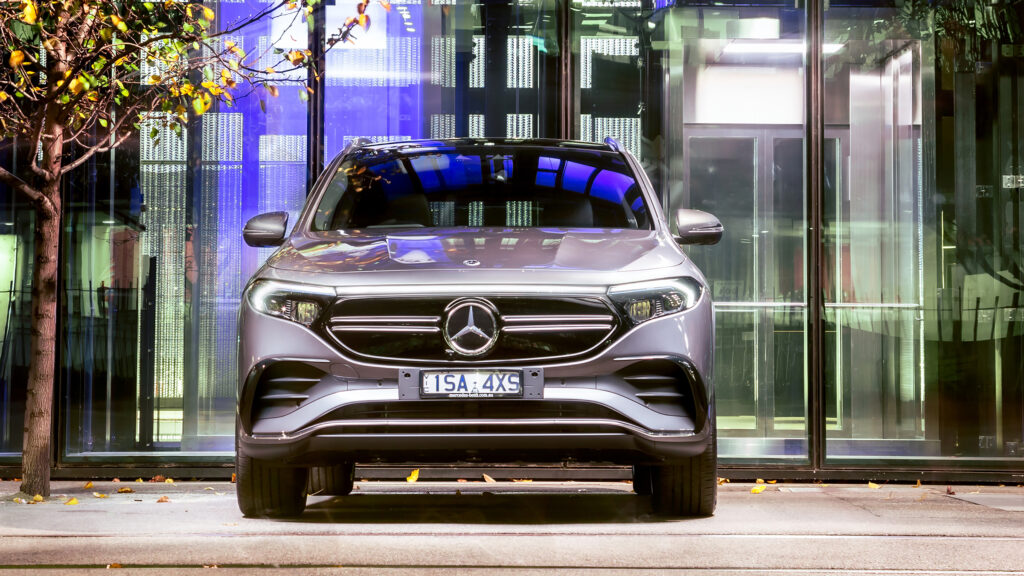
I must admit I was a little surprised to learn just how well BMW was doing when it comes to EV adoption, and even more so when I discovered that its biggest-selling car globally, as of 2024, is the BMW i4 M50 – quite possibly my favourite EV personally as a driver’s car – and that that was the third year in a row that it was its best seller.
When I asked Mr Michel how his company was achieving this, while other companies struggle, he said he would like to put it down to a combination of planning, pricing and a strong dealer network.
“The fact is that BEV sales have exceeded even our own expectations, but it’s not an accident because we put together a little strategy two years ago, and that was to get as many cars positioned as possible below that LCT and FBT thresholds in Australia,” he explained.
“We saw an opportunity, we got the green light to do it, and here we are, three out of every 10 BMWs is now a BEV.”
The Luxury Car Tax (LCT) threshold for fuel-efficient vehicles currently sits at $91,387.
Ask Audi Australia why it’s not been kicking quite as many EV goals as BMW, and it comes down to that price point issue. “We started with the top models, the most expensive ones, and we’re confident that things will change now that we have the Q4 in market, which is under the LCT, that’s our first offering in that price bracket and it will make a big difference.”
The Audi Q4 is priced at $84,900, and Audi will be hoping that by this time next year it pushes its percentage of sales that are BEVs at least into double figures. Or perhaps even as high as the overall Australian market.

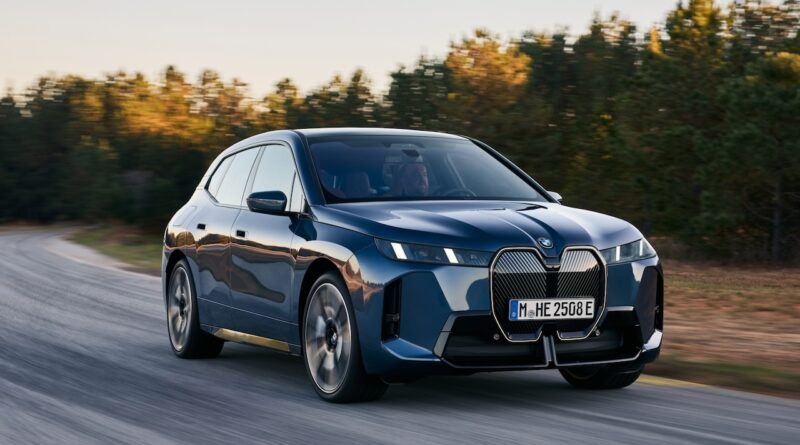
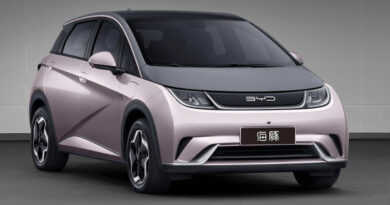
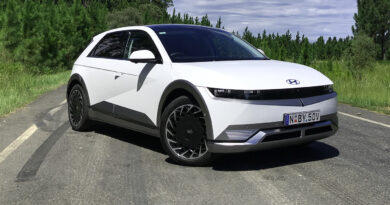
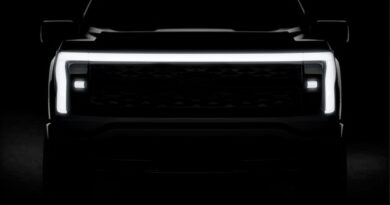
*Luxury, not premium.
C’mon Sam give us a bit more than that.
BMW so a larger proportion of EVs compared to their ICE cars because they have priced their best value ICE cars like the X3 30i and 330i beyond reach of customers. They don’t even sell the new X3 30i. There was a time when BMWs would be head and shoulders above the mainstream maket (Mazda etc) in terms of power, handling and luxury. The value proposition was present despite the price premium. Post Covid, they have increased prices by 50% and the value just isn’t there. They sell underpowered cars like the x3 20i in the sub 90k segment while previously we could get a fully specced x30i at that price range (now $115k). Even with EVs, whilst bmw offer better care than Audi and Merc, their sub $90k EVs are not a match for Tesla or BYD or even Hyundai in terms of performance and range. The i4 35 has low range, slow charging and in underpowered compared to the competition. Why spend $90k on this RWD car that has barely 400km range when you could buy a model 3 RWD that has range of 600km for $60k? Or a model 3 AWD for $75k? Tesla don’t have the best interiors, but when it comes up performance and handling they trump BMW big time now – unlike in the past when BMW did not really have competition. Those who want a better interior will pick BYD who also trump BMW on that count, plus offer better performance.
I have had an X3 and a 3 series previously. I was priced out of a similar new BMW years ago because of their crazy pricing. Get tried to get me to buy an X1 instead. No way. So my point is that people who never had a BMW and who want that German badge will probably pay through their nose for an ix1 or under specced i4 and will then feel very very bitter when they realise that other care for half the price are so much better. Existing bmw drivers will not upgrade. Hegde the large proportion of new bmw owners and yet falling year on year sales.
Stole is really the wrong word to use & has negative connotations.
Owned would have been better.
Long live BMW